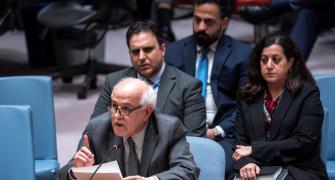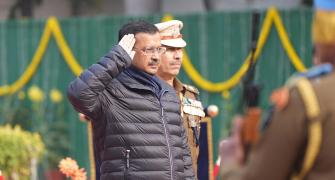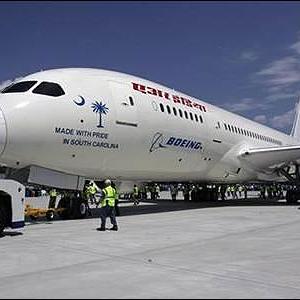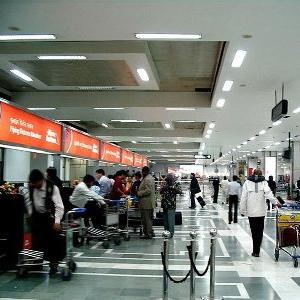The October 2015 draft aviation policy has made some interesting suggestions but it lacks long-term vision, notes Anjuli Bhargava.
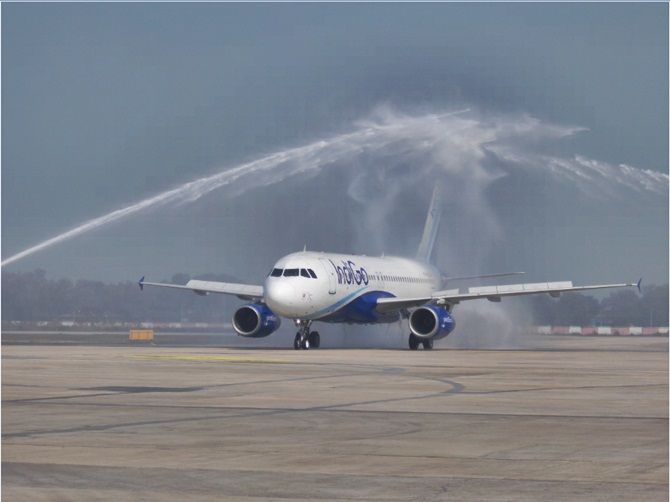 The October 2015 draft aviation policy announced by the civil aviation ministry has many redeeming features.
The October 2015 draft aviation policy announced by the civil aviation ministry has many redeeming features.
One is the new maintenance, repair and overhaul policy that the draft proposes. If the government walks its talk, we can expect a real shift from the way this business has been conducted in India so far.
We can expect many more airlines to get their aircraft serviced and repaired in the country and perhaps attract other airlines in the region to come to India for servicing too.
On ground handling - a contentious matter for a long time - there is, perhaps for the first time, a business-like approach.
Airlines are free to do their own ground handling or choose from a minimum of three ground handlers.
There is no upper limit to how many ground handlers there can be at an airport. There's more competition, more choice and that's certainly the best way forward.
There are some other nice details one doesn't expect from the government.
Safety and security - often overlooked or usually ignored - have been given a fresh look into instead of reiterating the same old archaic norms and rules.
If the government follows through on its intentions, India's skies and ground should be a lot calmer and safer than they were in the past.
But for all the niceties, for some odd reason, there's a complete lack of long-term vision and thinking.
It's almost as if the future doesn't exist. The intellectual vacuum that the government is often accused of is more than evident in the policy draft.
Indian carriers today carry roughly 37 per cent of international traffic to and from India.
The share has been going up slowly but no thanks to the government. I would have liked to see a push from the government to take this up to at least 45 per cent.
The policy does very little to encourage Indian airlines to use more of their bilateral traffic rights (traffic rights lie unused) and capture a larger share of the international - inbound and outgoing - traffic, which is what the government ought to be concerned with.
It only focuses on allowing foreign airlines to increase their frequencies into India. Don't we want the share of the Indian side to go up?
Or are we only interested in allowing the Emirates, Singapore Airlines and other Middle East and Gulf carriers to capture more and more of the Indian traffic?
Are we not keen on building a strong international carrier out of India? Neither Jet Airways nor Air India has managed to take on the foreign competition in the way they ought to have. We need an IndiGo-like airline to aggressively capture more of the international market.
In this context, the failure to take any view on the 5/20 rule makes it obvious that the government is too weak-kneed to make up its mind.
But for god's sake, drop the ridiculous domestic flying credit proposal. It is unnecessary and complicated.
I can picture a bunch of bureaucrats sitting with their heads in their hands, endlessly calculating the credits and making a hash of it.
A second disappointment in the draft is its lack of vision on airports. No matter which government has been in power, there has been virtually no attempt to try and develop any of the Indian airports into a hub.
Be it Singapore, Dubai or any other country, almost all governments have focused on trying to make their airports into global hubs for traffic. But in India we have steered clear of this. This draft is no different.
The policy ought to have done some crystal-gazing, looked at whether some airports in the country would reach saturation and by when and then examined whether it needed to review the ban on new airports within 150 kilometres of an existing one. It's not about today or tomorrow but 50 years hence.
As far as airports go, there is only one clear move forward: the policy suggests moving from single to hybrid till, the full impact of which we will know only when it is in force.
The rest is old wine in an old bottle. More controversial reforms, like privatisation of existing Airports Authority of India (AAI) airports, fail to find mention.
Goa, Chennai and Kolkata airports, run and managed by the AAI, are a disaster and deserve individual chapters of their own.
The policy's silence on all aspects that concern the government itself has alarmed the industry.
There is no mention of reform of Air India; the Directorate General of Civil Aviation and AAI have been left practically untouched.
No policy on aviation in India can afford to be silent on the above and if it is, it can best be described as half-baked.





